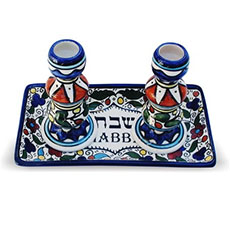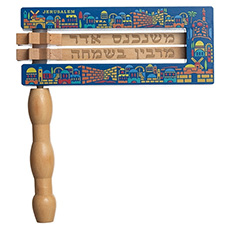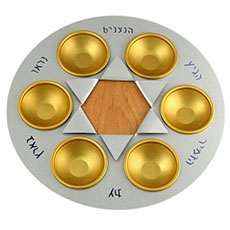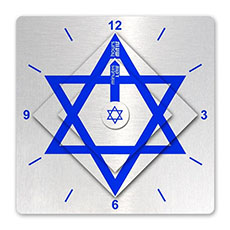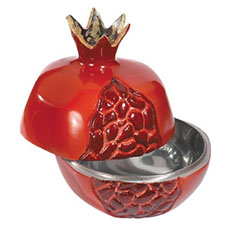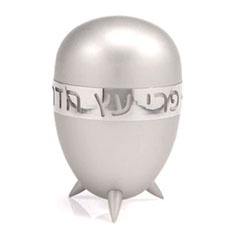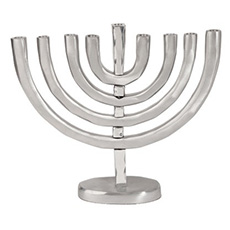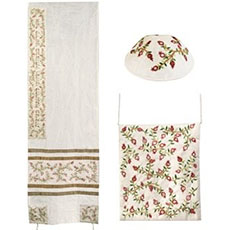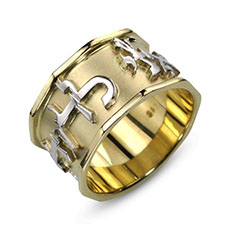The Jewish calendar is a motley collection of celebrations of historical triumphs alongside grief over past tragedies. Some festivities were spurred by a potential peril that the Jews managed to escape, such as Purim and Hanukkah, while others are celebrated annually to remind us of the fact that God never ceases to protect us, such as Passover and Sukkot. Other holidays, like Yom Kippur and Rosh Hashanah, are celebrated for spiritual reasons.
Jewish Occasions
The Jewish calendar is a motley collection of celebrations of historical triumphs alongside grief over past tragedies. Some festivities were spurred by a potential peril that the Jews managed to escape, such as Purim and Hanukkah, while others are celebrated annually to remind us of the fact that God never ceases to protect us, such as Passover and Sukkot. Other holidays, like Yom Kippur and Rosh Hashanah, are celebrated for spiritual reasons.
Rosh Hashanah, which marks the first day of the Jewish year, is the anniversary of the creation of the first man and woman, Adam and Eve. One of the most famous observances of this holiday is the sounding of the shofar, a ram’s horn, which represents the sounding of trumpets when crowning a king. Another custom, vastly popular albeit not religious, is giving loved ones Rosh Hashanah cards and gifts.
Passover and Sukkot are two distinct holidays, although their source is a joint one. Passover is celebrated due to the fact that when the Israelites were in Egypt, and God struck the plague of the First Born, which was the last of ten plagues, He passed over the homes of the Jews . On Passover the Jews have a Seder, which is a dinner celebration commemorating God’s deliverance. The Seder includes reading from the Passover Haggadah, placing a big Seder plate in the middle of the table with assorted foods on it, and eating matzo, or matza.
Sukkot, as explicitly explained in the Torah, is meant to help us remember the fact that Hebrews did not have permanent dwellings in the desert, when God took them out of Egypt. Thus, every year we sleep in a Sukkah, often translated as “booth,” for a week in order to remember the Hebrews’ migratory life in the desert.
Hanukkah, also known as the Festival of lights, celebrates the triumph of spirituality over physicality. When we reclaimed the Holy Temple from the Greeks, we managed to light the Menorah, the seven-branch candelabrum, for eight consecutive days, although the oil with which we lit the Menorah was only supposed to last for one. Today it is a joyous time, especially for kids, who play with their dreidels, receive Hanukkah gifts from their parents and sometimes light the Menorah using colorful candles.
Each Jewish holiday has its own customs and background. However, there is one common denominator to them all: they are a time of sheer exuberance.
Jewish Occasions Guide
Jewish holidays are spread throughout the entire calendar year, the big Jewish holiday time being usually around September and October. These holidays are celebrated on the Jewish calendar date, and thus change every Gregorian calendar year. There is a wide array of Jewish holidays, and an equally board array of reasons for these festivities, ranging from spiritual to perils overcome by the Jewish people to annual reminders of God’s never ceasing protection.
Rosh Hashanah
Rosh Hashanah is the first day of the Jewish New Year, as per the Jewish calendar. This celebration is one of most important throughout the Jewish calendar year and often takes place in September or October of the Gregorian calendar year. Rosh Hashanah is celebrated by eating crating foods such as apples and honey from beautiful Honey Dishes, as well as the blowing of the Shofar.
Passover
Passover is a Jewish Holiday that is celebrated every spring, it is celebrated throughout seven days and is marked by a ritual in which only unleavened bread is eaten. This Jewish Holiday is also known as Pesarch, its Hebrew name. One of the most common symbols of Passover is the Seder Plate, in which the 6 food items reminiscent of the Jewish Exodus are placed. As well, just like on Shabbat (or Sabbath) the Kiddush cup is used for this Jewish Holiday.
Hannukah
Hannukah is considered to be the Jewish Holiday of lights, as the major ceremonial aspect and symbols is the lighting of candles every night for 8 nights in a candle holder called a Menorah. Menorahs are specially built to hold exactly the number of candles needed for this celebration and are generally only used during Hannukah. Traditionally menorahs are made of sterling silver or brass, but can also be fabricated out of glass. Children celebrate Hannukah with Dreidels, a four sided square spinning game which originated in Europe, but has since spread around the world.
For More Information
For More information on Jewish Holidays or Judaica items, feel free to contact our Judaica experts with any questions or concerns.


